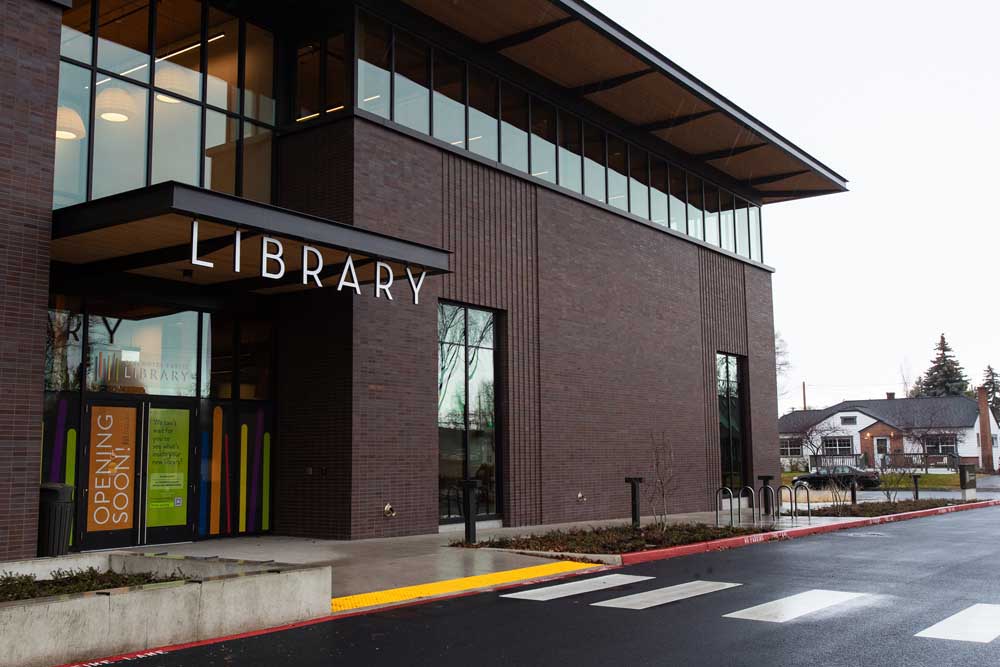Confronting Crisis: County receives state funding for alternative police response
Published 6:30 pm Wednesday, February 8, 2023

- Stock image
Meeting people on what could possibly be the worst day of their lives is what Josh Gage does on a full-time basis.
Gage works for Deschutes County as a member of the Mobile Crisis Assessment Team — trained behavioral health specialists who respond to those experiencing a mental health crisis.
Trending
Typically, the team responds alongside law enforcement officers, but on May 1, the roles will flip. The team will be the first responders to those in crisis instead of law enforcement. It will be a first for Deschutes County.
Wednesday, the Deschutes County Commission voted to accept more than $400,000 in state funding and the addition of two new employees to the county’s behavioral health department. This means more capacity for the county’s crisis team. Commissioners Patti Adair and Tony DeBone voted for it. Commissioner Phil Chang was absent.
Gage calls what he does a lifestyle.
It’s long hours and an irregular work schedule, but the payoff is helping people in crisis stabilize, Gage said.
Gage equates a mental health crisis to drowning. It doesn’t matter if it’s 6 inches of water or 10 feet, drowning is drowning, he said.
And that’s how he approaches each person experiencing a crisis. Personal politics don’t matter. Neither does where they live in the county or what they look like. A crisis is a crisis, and everyone has mental health needs, he said.
Trending
“Once I show up on scene, I try to de-escalate not only the person but the scene itself because our goal is to try to take the burden off of the jail and the hospital and get (people) to other resources,” Gage said.
The funding for the team came from the Oregon Health Authority as a result of statewide administrative policy mandating each Oregon locale offer crisis services to the community. Eugene’s CAHOOTS (Crisis Assistance Helping Out On The Streets) model, which is run by a local clinic, has been lauded throughout the country for providing an alternative to law enforcement, particularly to vulnerable populations.
Offering an alternative to law enforcement response in Deschutes County does two things, according to Gage.
It takes the burden off of law enforcement to be mental health specialists and it allows those in crisis to be more authentic and trusting of responders, Gage said.
“Law enforcement has to be trained for an entire different variety of response, but we are there for mental health,” said Gage, who previously worked in law enforcement.
In 2022, the crisis team responded to 3,759 calls for service, according to Adam Goggins, the crisis program manager for the county.
“We get calls all across the county,” Goggins said.
Of the more than 3,700 total calls, 1,765 were for law enforcement agencies, he said. A majority of those, 1,202, were for the Bend Police Department. The rest of calls were face to face calls or calls for a consult from other organizations or individuals, Goggins said.
According to Sheila Miller, spokesperson for the Bend Police Department, there were nearly 2,000 calls for service to Bend Police for what could be crisis-related incidents.
Every county across the state is receiving similar funding to what Deschutes County is receiving, in varying amounts tailored to population, said Holly Harris, the director of behavioral health for the county. The county also secured some funding from the city of Bend to run the crisis team.
The county has been working on an alternative to a law enforcement response for years, but the pandemic put a wrench in the plans, Harris said.
“There are cases when we do need law enforcement still, and that is always going to be the case,” Harris said. “But in many cases, if somebody is suicidal, somebody’s having an anxiety attack, somebody’s psychotic but not doing anything dangerous, that’s just not something law enforcement needs to be a part of.”
The existence of the crisis team also reduces the likelihood of a bad outcome from law enforcement interactions, especially the use of force, Harris said.
The behavioral health department has developed a checklist of criteria for 911 dispatchers who can transfer appropriate calls directly to the crisis team, Harris said. The team can then, in turn, respond to someone in crisis without law enforcement.








